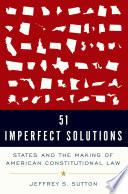
Swiss Constitutional Law
Switzerland is not only one of the oldest democracies in the world, but also an enduring model of peaceful multiethnic policy, characterized by a Constitution that is constant flux. The new Federal Constitution of the Swiss Confederation took effect on January 1, 2000; and it is with the intention of staying abreast of the constitutional changes and of the case law of the Federal Court that the authors have prepared the current volume. A general introduction of the constitutional history and the foundations of the Swiss political system are followed by the following issues: Sources of Swiss Constitutional Law; Organisational Design of the Swiss Confederation; Federalism in General and the Position of the Cantons and the Municipalities in the Swiss Confederation; Citizenship, Fundamental Rights and Liberties and their Judicial Protection, Protection of Minorities, Judicial Control of Administrative Action; Treaty and Foreign Affairs Powers, Taxing and Spending Powers, the Relationship between the State and the Church. Thomas Fleiner is Professor of constitutional and administrative law and Director of the Institute for Federalism at the University of Fribourg, Switzerland; Alexander Misic, lic.iur., LL.M.; Nicole Toepperwien, Dr. iur., LL.M.
- ISBN 13 : 9041124047
- ISBN 10 : 9789041124043
- Judul : Swiss Constitutional Law
- Pengarang : Thomas Fleiner, Alexander Misic, Nicole Töpperwien,
- Kategori : Law
- Penerbit : Kluwer Law International B.V.
- Bahasa : en
- Tahun : 2005
- Halaman : 306
- Google Book : http://books.google.co.id/books?id=-S1fHJiawHUC&dq=intitle:Constitutional+Law&hl=&source=gbs_api
-
Ketersediaan :
The new Federal Constitution of the Swiss Confederation took effect on January 1, 2000; and it is with the intention of staying abreast of the constitutional changes and of the case law of the Federal Court that the authors have prepared ...









